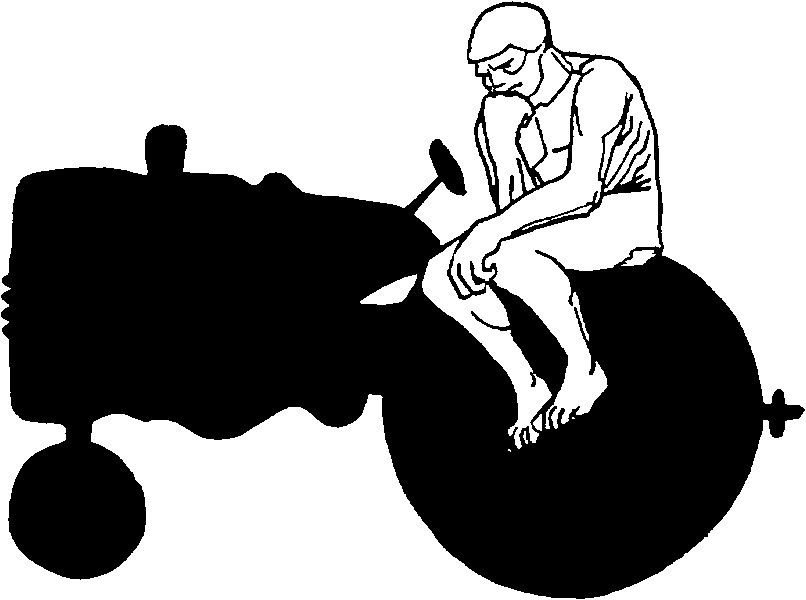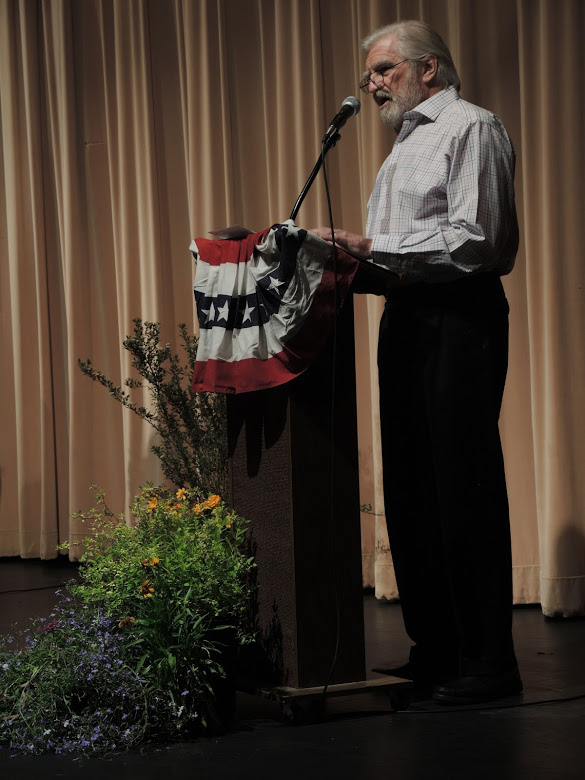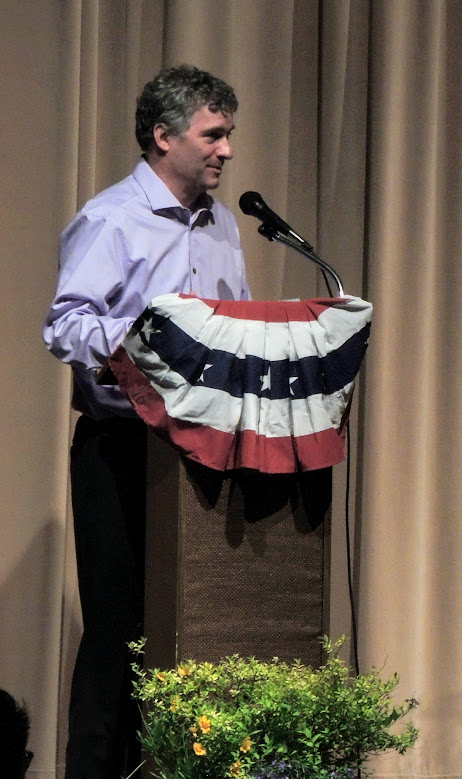28th Great American Think-Off
Congratulations to all 4 finalists!
Read the winning essays below
The four finalists for the 2021 Great American Think-Off are (in alphabetical order): AJ Gil of Atlanta, GA; Angela Stehr of St. Paul, MN; Bill Sutherland of Eden Prairie, MN; and Daniel Tschida of Minneapolis, MN.
On Saturday, June 12, 2021, AJ Gil and Angela Stehr argued that it is more important to win, while Bill Sutherland and Dan Tschida argued that it is more important to play by the rules. Dan Tshida earned the gold medal and title of “America’s Greatest Thinker” for 2021, while AJ Gil came in second and earned the silver medal. Angie Stehr and Bill Sutherland each earned bronze medals, and each of the four finalists received a $500 cash prize and weekend in New York Mills.
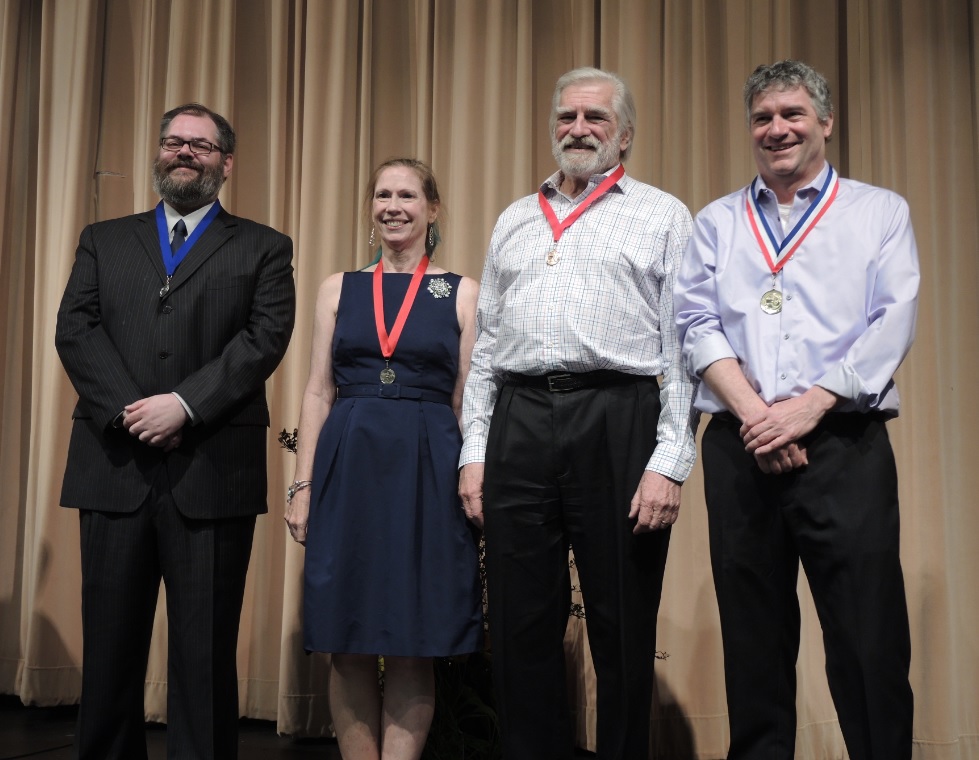
Read the 2021 Think-Off Finalists’ award-winning essays below:
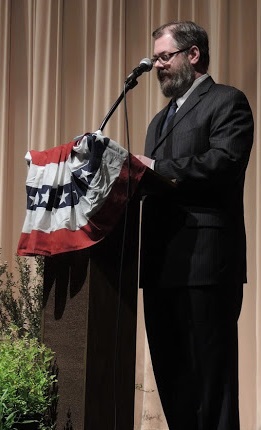 AJ Gil
AJ Gil
WIN
If You Don’t Win, Then The Rules Will Keep You Losing
I’m saddened by this debate topic, because it says a great deal about our society and what we value. If we value winning over the rules, then we admit the rules are obstacles to winning. If we value the rules over winning, we are still saying that the rules prevent winning. It’s a purely transactional society: you either follow the rules, or you get everything you can.
The problem, really, is that the debate proposition ignores one main fact: the rules are made by the winners. For that reason, I have to come down firmly on the side of WIN.
I started my professional career as a loser. I graduated law school in May of 2008, full of promise. I passed the bar that year in October, feeling much less optimistic. It took me a year to find full-time work, because the economic collapse had flooded the job market with experienced attorneys and I was newly-minted. During that year of looking, I was angry. I’d gone to a good professional school. I’d taken out loans. I’d done the work to get into a “safe” career. I’d followed the rules and yet, through no fault of my own, I had failed. The real iron: the people who collapsed the economy also followed the rules.
Every subprime mortgage, credit default swap, and bundled security that collapsed the economy was perfectly within the rules. Those rules were made by people who’d already won in the market, but wanted to win more. They leveraged their money into access, and their access into legislation and regulations. They won, they made the rules, and most of us lost. When the very entities who created financial ruin looked like they might lose, they invented a new rule: the concept of “too big to fail.” The winners made new rules to make sure they stayed winners.
When I eventually found a full-time attorney job, I ended up working in immigration, a field I never studied nor intended to practice. The thing you realize quickly about the law in general, and immigration law in particular is that the law is made to pick winners and losers. Every trial has a winner and loser. Every law is written by congress people who’d won their elections. Every constitutional principle is defined by parties who won their arguments in an appellate court. In immigration, the winners and losers are implicit, like the asylum-seeker who loses and gets deported. Watching someone whose decision to follow the rules led them to lose everything puts the rules and winning in stark contrast. It’s even more stark when the losers are made explicit in the law: see, e.g., country quotas, or the Chinese Exclusion Act.
Whether the rules are within an organization set by an internal hierarchy, or those rules are laws passed by elected officials, the rule-makers got there by winning. The only way to change the rules, then, is to win. Every major civil rights shift has started because the rules were challenged. The very concept of civil disobedience prioritizes winning over the rules, when the rules need changing. Rosa Parks is not celebrated for her rule-following, but she definitely won.
The question shouldn’t be whether the rules or winning are more important. The question should always be are the rules any good? The way that you ensure the rules are good are by fighting for good rules, and winning. You have to win public opinion, official positions, elections, and court cases.
Ultimately, the goal should be harmony between winning and the rules. If, however, following the rules and winning are truly a dichotomy, winning must be prioritized in the name of crafting better rules. Winning matters, because it’s the only way to get rules worth following.
~~~
Angela Stehr
WIN
It is more important to win.
My first inclination when thinking on the topic was that it was more important to play by the rules. My gut response automatically extrapolated from more important to win to most important to win and I reacted strongly by thinking that winning cannot be the most important thing in our lives, in the world. That would validate exploitation, cheating, profiteering, selfishness, and self-indulgence as more important than justice, generosity, empathy and compassion. Based on that personal identification, I absolutely rejected winning as being more important than following the rules. I wanted a more just and compassionate world rather than a more exploitive and self-indulgent world.
And then I was discussing the question with my friend Courtney on our usual lunchtime walk and that led to a reversal in my position. My earlier perspective had all been on rejecting winning as most important. By reducing the contrast to most rather than more, I had not considered at all the relative desirability of following the rules. If a more just and compassionate world was more important than winning, why wasn’t it worth breaking the rules to attain those things. As a result, I completely flipped my view on which was more important but for exactly the same reasons and values.
What if the rules are unjust and need to be broken?
If something is really worth fighting for, it may well be worth breaking the rules for. Many people I consider heroes are heroes especially because they broke the rules. Think Rosa Parks, Suffragettes, Freedom Riders, lunch counter sitters, and countless others, all breaking rules that needed to be broken. Fighting with the wind at your back is one thing, fighting facing into headwinds against the establishment, the norms, the rules, against you is quite something different. This of course takes the entire argument down the path of whether it is better, or at least sufficient, to make the necessary changes through the process, following the rules, rather than breaking the rules. With all of those examples above, the changes in civil rights did happen through the regular processes but only after extraordinary pressures were put onto that system by the rule breakers. Our complex bureaucracy, our privileged comfort in the status quo, our complacency, all put the breaks on making many of these changes. The rule breakers can force society’s foot on the gas. Sometimes that is needed.
I am inherently a rule follower. I guess that’s good thing but as I write this I’m not entirely sure it is something of which to be proud. I am a good, law-abiding, rule-following citizen. I certainly have volunteered, marched, protested but always within the rules. I very often wonder whether I would have the strength and courage of those who hid and protected people during the holocaust or of the Freedom Riders. I have never really been tested like that and I don’t know where I would come out. But I do know whom I admire and how I hope I would come out.
Now, this does not mean that I value winning at all costs or winning for the sake of winning or just winning anything at all. Or that I think rules are unimportant or are meant to be broken. I certainly have boundaries I cannot imagine crossing such as using violence or harming anyone. I see cases in the news of people fighting for their cause, multiple actions by Ammon Bundy out west, abortion opponents bombing clinics and murdering doctors and I just see the violence or the contempt of society but I’m sure they see their actions as justifiable rule-breaking in defense of a just cause. It does come down to a matter of context and conscience for each of us but I came to realize that winning might be an act of conscience and not just victory and that following the rules could be an act of complacency, or even complicity, rather than just duty or respect.
For some causes, winning isn’t just more important, or most important, it might be everything.
~~~
Bill Sutherland
RULES
To Win or to Play by the Rules?
Fascinating question – simple, yet sweeping.
As a degreed and licensed professional engineer, I have spent a fair portion of a 50-year career practicing in the sub-specialty of forensic electrical engineering. Simply put, I and my ilk are called in to investigate and report, and frequently testify as an expert witness, on instances where a failure or defect in an electrical product or system may have caused or otherwise contributed to personal injury or property damage.
Calls for such services are most commonly made by lawyers or insurance carriers whose goal is to blame someone else for the failure, or to defend their client or insured from someone who has blamed them. Hence, they have skin in the game.
My role in such cases is to try to determine what happened, without overmuch concern about who is to blame. Accordingly, I do not have skin in the game, except to the extent that I expect to be compensated for time and expense related to my services.
A challenge sometimes arises in that the American Bar Association’s code of conduct – their Rule – requires lawyers to place first the interests of their client. On the other hand, the National Society of Professional Engineers’ code of conduct – their Rule – requires engineers to place first the protection of the public. So the ‘rules’ materially differ between key players in the process.
(Note that a forensic engineer is expected to determine a result to “a reasonable degree of engineering certainty,” which by definition leaves little room for compromise. If any compromise is to happen in a civil matter, it is financial, not scientific, and among the lawyers negotiating within their parallel rules.)
Occasionally this difference in worldview can go to extremes. Every now and again a lawyer would offer to “help” me write a report, or otherwise get involved, if the discovered facts happen to not sufficiently align with their interests. And, sadly, I am also aware of instances where an engineer may have downplayed or otherwise skewed “unhelpful” findings. At such times, although someone’s rule may have been invoked, in my view nobody really wins.
As an example of the former, several years ago I was involved in the investigation of a nighttime house fire that resulted in multiple fatalities. My analysis concluded that a specific component of the house wiring was the culprit, while the lawyer, my client in this matter, would be better served if the fire had started due to failure of an appliance. Next thing I knew I was no longer a participant in the case.
As an example of the latter, in a large property damage case I was investigating, an engineer neglected to conduct important tests in the hope that the anticipated negative results would not factor into the settlement.
A bit esoteric, perhaps, but these instances amply demonstrate that one person’s win can be at the expense of another person’s rules.
These examples, fortunately, represent the exception. One lawyer I worked with several times over the years was once overheard to say rather assertively to their corporate client, when being verbally abused for an unfavorable determination by me, “These are not my [bleeping] facts!” Such events, frankly, give me hope. Imperfections in the system notwithstanding, in my experience good science usually prevails.
Why do I do this sort of work, with its built-in conflict and drama? I see my role as helping to keep junk science out of the courtroom. That’s my personal win. How do I handle the professional pressure, should it arise? Some years back I established four tenets for myself to focus on, which are in effect my personal rules: They are Awareness, Balance, Elegance, and Gratitude. Properly applied, they always see me through.
So, is there a resolution here? Can different humans playing in the same arena by different rules both win? In this narrow slice of Americana, I believe the answer is yes, if.
If the players will have the courage, or foresight, or even take the trouble, to recognize that within a proactive interpretation of the concept of winning resides a common ground where both rules have value. Where winning embraces society-wide benefit and advancement. In short, where the winning is shared. Perhaps in our near-term evolutionary future such an ideal may come to pass.
And if it sounds like I harbor a bias in the matter, perhaps that explains why I pursued a career in engineering rather than the law.
~~~
Dan Tschida
RULES
Winning provides temporary gratification, but playing by the rules results in enduring success. As a lawyer, and later as a high school teacher, I have long been a believer in the rule of law. But playing by the rules means more than following the law; it means respecting fundamental human values like “love thy neighbor” and the Golden Rule. From Confucius, James Madison and Martin Luther King, to the fictional George Bailey and Hannah Montana, playing by the rules has proven the best way to ensure liberty and justice for all.
In the world of education an “A” is evidence of winning. Some students who I have caught cheating have correctly, and with 100% sincerity, responded, “I thought you wanted me to get an ‘A’ ?” Adolescents with limited life experience often recognize the value of achievement but have difficulty comprehending the greater purpose of education. The education system feeds into this misconception by citing standardized tests and graduation rates as proof of success. Unfortunately, this need to quantify education leads to lowered standards and “teaching to the test.” It does not result in greater understanding. Like Nigel Tufnel in Spinal Tap, it is simply turning the volume up to 11.
Learning through playing by the rules is a complex, long-term process. The “A” by itself is not the goal; rather the grade provides an incentive to think, listen, develop good study habits and persevere. School is not just about winning, it’s about learning from mistakes. To paraphrase Confucius, “our greatest glory comes not in never falling, but in getting up every time we do.” Students who challenge themselves throughout many years of education learn interpersonal skills such as understanding, cooperation, trust and reciprocity. In short, playing by the rules is the way students develop the social capital necessary for society to function effectively.
Because the rules are made by the rich and powerful, one could argue only the privileged few have the luxury of playing by the rules. Therefore winning is important because it is a necessary prerequisite to changing the rules. This version of winning appeals to our sense of righteous justice like the vengeful hero in a Clint Eastwood movie, or the revolutionary call “by any means necessary!”
However, winning is only a temporary solution that encourages self-interest and perpetuates the cycle of inequity.
When I was a lawyer I worked for two very intelligent judges, both hailed from conservative professional backgrounds, and both held liberal perspectives regarding social justice. One judge utilized his considerable legal expertise to bend the rules when he felt individuals were being abused by powerful corporate interests. The second judge refused to break the rules even when the results seemed inequitable. He felt rules were the only consistent way to provide opportunities to the powerless. Without rules, he contended, the strongest always win. Although it is tempting to break the rules for benevolent purposes, it is a temporary solution with significant potential for abuse. As Martin Luther King recognized, “the arc of the moral universe is long but it bends toward justice.”
In politics and economics, winning must also be tempered by playing by the rules. James Madison feared mobs motivated by “temporary popular passions” because political factions, then as now, pursue winning at all costs in hopes of furthering what they believe are noble causes. But governments based upon winning ultimately fail because the victors forsake the rule of law in favor of individual interests, quickly eroding faith in the system. Similarly, economic competition provides individual incentives to work hard and improve. But without rules, economic winning becomes only about making money. It inevitably leads to fraud and exploitation, and does not protect the environment, control pandemics or provide disaster relief. Without rules, making money is like cheating to get an “A”; it does not foster long-term economic goals such as innovation and job creation.
By following the rules, we commit to enduring values not temporary passions. Grades and money must be earned in order to effectuate their underlying purposes. Changing the rules through reform is often slow and imperfect, but it is lasting — while revolutions fade with the whims of their leaders.
Although less gratifying than the vigilante justice of Dirty Harry, long-suffering heroes like those portrayed by Jimmy Stewart represent the enduring values of playing by the rules. As Disney’s Hannah Montana declared: “ain’t about how fast we get there, ain’t about what’s waiting on the other side, it’s the climb.”
~~~
